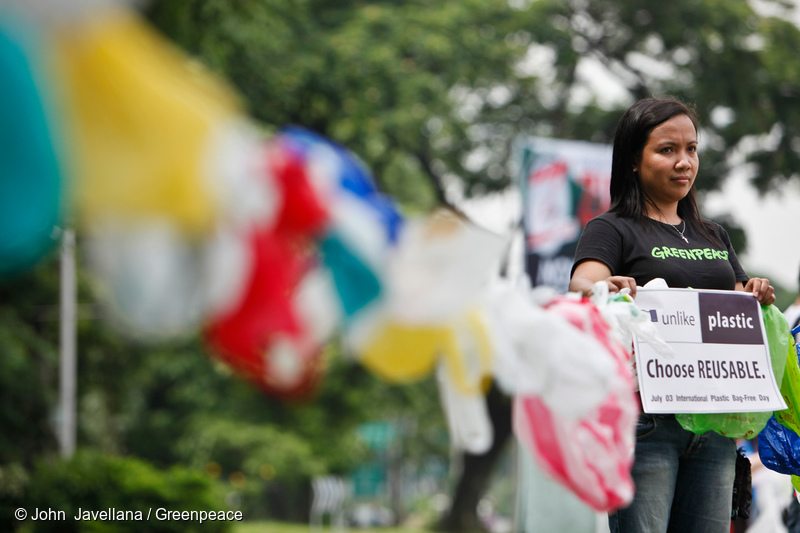A few weeks ago, Australia took a huge step forward in the fight to protect our oceans from plastic pollution. After enormous public pressure, community organising and hard-hitting campaigning, Australian supermarket giants, Coles and Woolworths both announced – on the same day – that they would ban single-use plastic bags in 2018. An amazing testament to people power.

A few weeks ago, Australia took a huge step forward in the fight to protect our oceans from plastic pollution. After enormous public pressure, community organising and hard-hitting campaigning, Australian supermarket giants, Coles and Woolworths both announced – on the same day – that they would ban single-use plastic bags in 2018. An amazing testament to people power.
This is fantastic news for our beaches, rivers and marine life. Eliminating single-use plastic bags from supermarkets means helping to cut back on more than 3000 tonnes of plastic litter that ends up in our oceans each year, that could otherwise choke turtles and ruin our beautiful coastlines.
But if this good news has also left you scratching your head wondering about alternatives for single-use plastic bags; don’t worry, we’ve got some super simple solutions that you can start using right now!
-
- BYOB! (bring your own bag) when you go to the supermarket. Simples. Durable canvas materials will last for years if you look after them. You’d only need to use these bags about 50 times for their environmental benefits to be realised – which is less than once a week for a year!
- Line your bins with newspaper. We’re in the digital age now and not everyone buys newspapers, but there are free newspapers on trains, in cafes and old copies that your neighbour might have discarded. Check out this great video from Boomerang Bags on how to make your own newspaper bin liner.
- Use existing household packaging. Chances are you buy things like toilet rolls and food items that come with their own plastic packaging; like frozen peas. You can put waste directly into these items, using it like you would a plastic bag. As a bonus – use an indoor compost or worm farm to minimise food waste going into your garbage bin, keeping your bins clean and reducing the need to line them at all!
- “But what about dog poo?” It’s often said that dog waste can’t be composted because it carries potential pathogens, but when done correctly, dog waste can be composted safely and to great benefit of the surrounding environment. At Brooklyn, New York’s East River State Park, two compost bins have been added for dog owners to dispose of their pet’s waste. You could ask your local park to set up a similar system or you could invest in your own dog poop composting bin at home (make sure to research the safest methods). If that isn’t an option for you, then there are portable dog pooper scoopers out there, meaning you just have to pop the poop in the bin or down the loo at home.
- Reuse plastic bags you already own. Many households will already have a collection of plastic bags (most likely in the form of one big plastic bag stuffed with dozens of smaller ones, right?). To make sure they don’t go to waste or end up in the bellies of turtles, use them as much as possible until they’re on their last legs. Once you really can’t use them anymore, take them to a plastic recycling depot like REDcycle.



